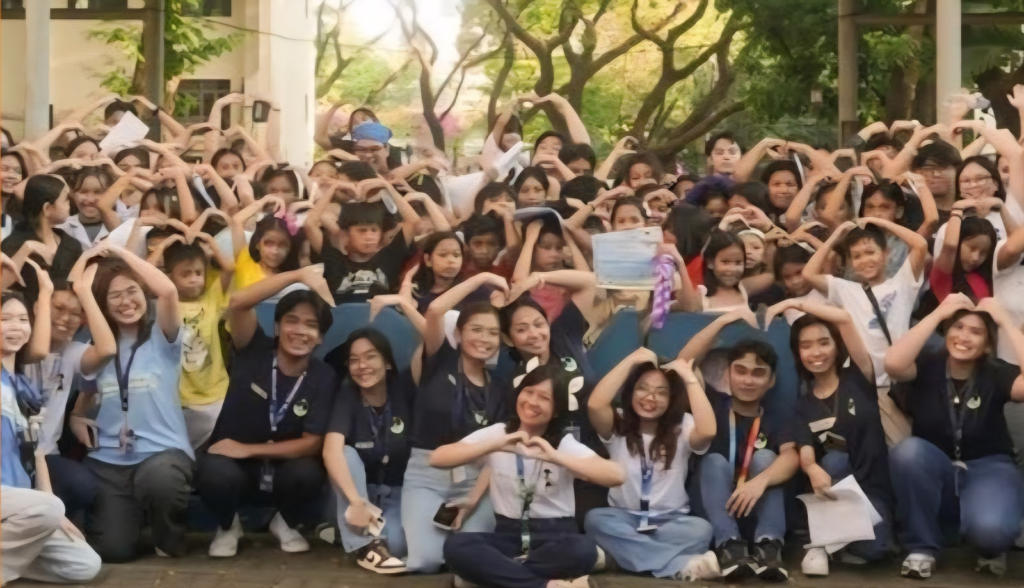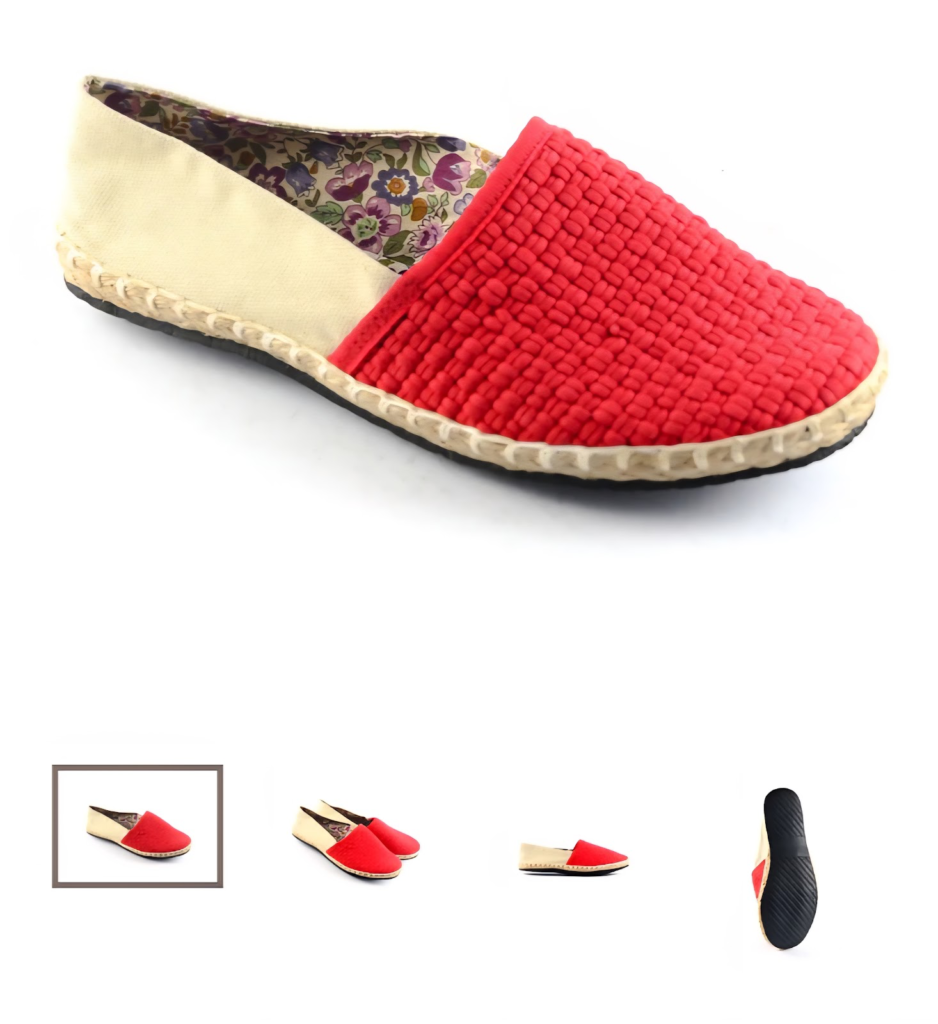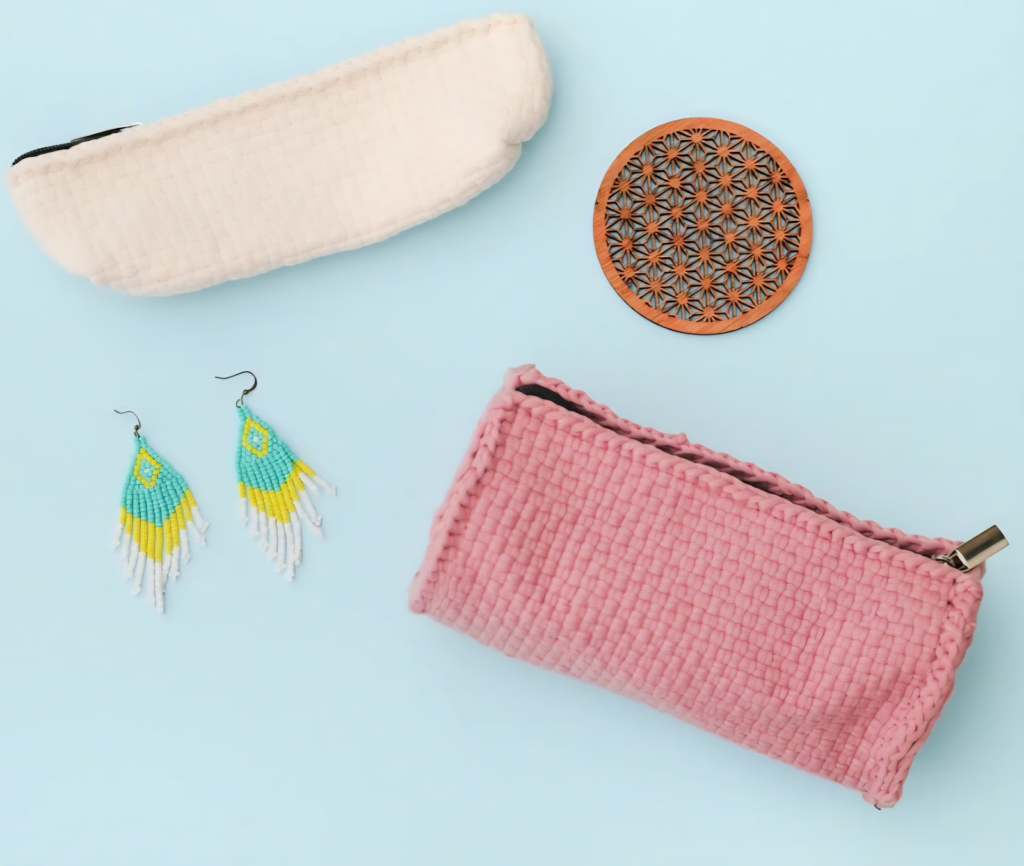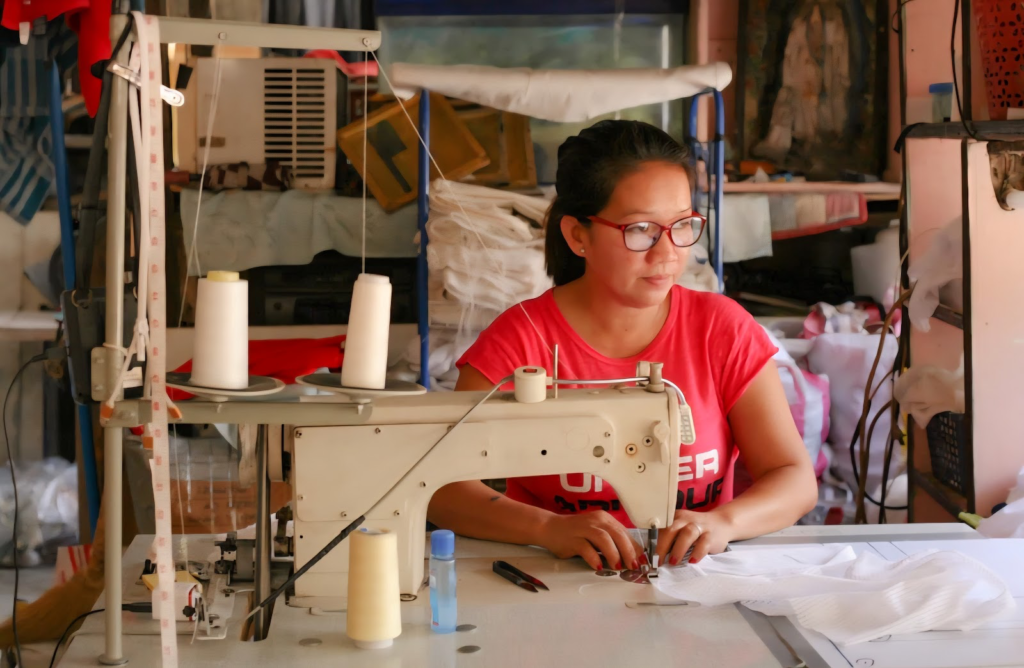Case Story: Behind the Seams of Habi Lifestyle
At age ten, Janine Mikaella “Nin” Chiong already had a sense of how business worked. She tried selling her mother’s surplus bracelets to classmates—but at such low prices that her mother quickly intervened. What could have been just another scolding turned into her first business lesson: pricing matters. Her mother showed her how to calculate costs properly, teaching that selling is not only about moving products but about valuing them correctly. This early experience in product costing became her first taste of entrepreneurship. From there, small ventures followed—baking, cooking, and selling chocolate lollipops—early signs of a “raketera” mindset. Still, behind these hustles was a shy girl quietly searching for her true passion.

Her search shifted during her college years at Ateneo de Manila University. Janine became actively involved with Musmos Ateneo, a student organization dedicated to working with children from underprivileged communities. The group’s name, musmos—Filipino for “child”—captures its mission of helping young people through play-based activities, values formation, and mentorship (Musmos Ateneo, n.d.). For many students, joining Musmos is part of Ateneo’s wider social formation framework, where organizations and immersion programs under the Office for Social Concern and Involvement (OSCI) bring learners face-to-face with poverty, inequality, and resilience in marginalized communities. Social formation at Ateneo is not an optional add-on but an integral component of education, designed to cultivate solidarity, reflection, and service (Ateneo de Manila University, n.d.; Dela Cruz, 2022).

Through Musmos, Janine’s volunteer work went beyond occasional outreach. She worked directly with children, saw their daily struggles, and realized how much their growth depended on the stability of their families. When mothers lacked steady income, children’s opportunities suffered. Serving as president of Musmos deepened these insights and convinced her that meaningful change could not stop with one-time exposure; it had to be sustained and transformative.
Around the same period, Ateneo introduced its social enterprise track. For Janine, the program offered a natural way forward: a chance to merge her entrepreneurial interests with her compassion for children, by creating an enterprise that could strengthen families and, in turn, nurture healthier environments for the young.

Together with classmates, she began developing what would become Habi Lifestyle. Their first product idea carried both symbolism and practical business insight: repurposing foot rugs (basahan) into shoes. What might have been dismissed as a low-value household item was reframed as a functional and fashionable product. In business terms, this was an early lesson in value upgrading—taking an existing material with limited worth and transforming it into something that could command higher value in new markets. By turning rags into footwear, the team showed how innovation is not always about inventing from scratch but about reimagining the potential of what already exists.
At the same time, Janine was intentional about the way Habi’s story was framed. From the outset, she made it clear that the enterprise would not rely on narratives of poverty to sell its products. Instead, Habi would emphasize the dignity, creativity, and skill of its community partners. The mothers were to be seen not as recipients of charity but as artisans and entrepreneurs in their own right, whose work carried cultural and economic value. This orientation became central to Habi’s brand identity and offered a crucial business lesson: in social enterprises, the story is part of the product. When told authentically and respectfully, it builds trust with customers while honoring the very people whose labor sustains the enterprise.

This commitment carried into the team’s fieldwork. Market testing began in Ateneo’s Zen Garden, where early prototypes drew interest from fellow students. Soon after, immersion in Quezon City communities through Ateneo’s (Leadership and Strategy) LAS Program brought them into contact with mothers weaving mats for as little as ₱10 to ₱15 per foot (BusinessWorld, 2018a). These encounters confirmed that Habi’s challenge was not only about redesigning materials but also about redesigning opportunities. By upgrading undervalued work into higher-value products, the enterprise could help mothers earn more dignified livelihoods—an insight that echoed Janine’s Musmos experience, where she had seen how family stability directly shaped children’s futures.
The journey was far from easy. Out of the six original members, only three remained. While Janine chose to devote herself to the venture full-time, her other co-founders opted for what they considered more secure paths, such as graduate studies and professional careers.
Determined to keep Habi alive, Janine and her teammates joined business plan competitions, eventually winning the Philippine Business for Social Progress–Citi Foundation challenge, which provided ₱100,000 in seed money. Their victory opened the door to represent the Philippines in an international round in Europe. Janine recalled being the youngest among all the participants at the event, which was attended by then–Princess Máxima of the Netherlands, a strong advocate of inclusive finance. To encourage young innovators, a Dutch angel investor extended a $10,000 loan to Habi, allowing the team to continue their work. For Janine, standing on that global stage underscored a turning point: Habi had moved from being a thesis project into a full-fledged business with a story worth sharing.
From these beginnings, Habi steadily built its identity as a social enterprise. They developed partnerships with communities in Payatas and Batasan in Quezon City, where weaving groups numbered some 30 active artisans (BusinessWorld, 2018a). Some of these weavers, through improved techniques and better orders, earned many times their prior rates. The enterprise expanded over time, partnering with women’s cooperatives in Marawi, Basilan, Isabela, and Ifugao (Habi Lifestyle, n.d.). Habi also diversified and refined its distribution, selling through online platforms while reaching customers in malls, resorts, and through corporate events.
The team placed emphasis not only on product design but also on dignity of livelihood. They encouraged mothers to represent themselves and their craft positively, using local components and small-batch production. Instead of framing stories around poverty, they highlighted ingenuity and skill. Customers were not simply purchasing shoes or accessories; they were engaging with cultural heritage, sustainable practices, and empowered communities.

Looking back, Janine identifies several lessons that remain relevant for today’s entrepreneur students. First is the need to believe in the potential of an idea, even when early prototypes are imperfect. Second and rqually important is the willingness to learn from customer feedback and to trust in one’s team. She also stresses the importance of professionalism and structure, clear operational standards, fair human resource practices, and boundaries between personal and professional relationships.
In its early years, Habi often absorbed costs to shield its partner communities from risk. While this came from compassion, the team eventually realized that real sustainability required accountability and ownership. Janine emphasized that the mothers should not see themselves as passive recipients, but as artisans who take pride in their craft. Honoring production standards and ensuring quality in every item became essential. With this shift, the mothers were no longer framed as beneficiaries of livelihood support but as skilled partners whose artistry and professionalism gave Habi its true value.
This balance of compassion with accountability and quality allowed Habi to build a model grounded in durability and integrity, standing on principles larger than profit alone. In many ways, Habi Lifestyle demonstrates the “triple bottom line”—people, planet, and prosperity—in practice.
It also challenges a persistent misconception about social enterprises: that they are businesses merely balancing profit with acts of charity. Habi’s approach is different. The mothers are integral to the supply chain, not outside of it. Their welfare, craftsmanship, and growth as artisans are central to the enterprise’s value proposition. In strengthening the dignity and artistry of its partner communities, Habi strengthens the business itself—showing that social impact and competitiveness can advance hand in hand.
References:
Ateneo de Manila University. (n.d.). Seeds of service: Office for Social Concern and Involvement. Ateneo de Manila University. https://www.ateneo.edu/mission/seeds/osci
BusinessWorld. (2018, July 31). Addressing poverty through fashion. BusinessWorld Online. https://www.bworldonline.com/special-features/2018/07/31/177430/addressing-poverty-through-fashion/
BusinessWorld. (2018, August 22). SparkUp Trends: Habi Footwear & Lifestyle enterprise. BusinessWorld Online. https://www.bworldonline.com/trends/2018/08/22/182088/sparkup-trends-habi-footwear-lifestyle-enterprise/
Dela Cruz, L. J. R. (2022). Ateneo de Manila University: Social formation as integral education. Kircher Network. https://kirchernetwork.org/wp-content/uploads/2022/07/15.-Ateneo-de-Manila-University-Leland-Joseph-R.-Dela-Cruz-PhD.pdf
Habi Lifestyle. (n.d.). About us. Habi Lifestyle. https://habilifestyle.com/pages/about-us
Habi Lifestyle. (n.d.). Meet the team. Habi Lifestyle. https://habilifestyle.com/pages/meet-the-team
Musmos Ateneo. (n.d.). About us. Ateneo COA RecWeek. https://www.ateneorecweek.org/coa/musmos
Philippine Business for Social Progress. (n.d.). About PBSP. Philippine Business for Social Progress. https://www.pbsp.org.ph